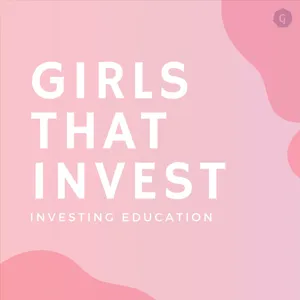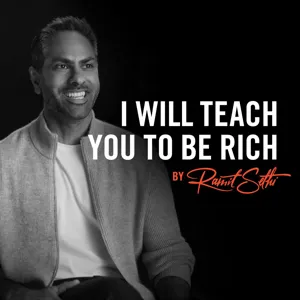Podcast Summary
Exploring the Fashion Industry and Economics: Listen to 'Fashion People' podcast for fashion industry insights, US invests $1B in port infrastructure, and learn financial literacy with 1,000,000 bazillion live tour
Behind the glamour and multi-billion dollar deals in the fashion industry, there are intriguing discussions and events happening. The new podcast "Fashion People" by Puck and Odysee provides an inside look into the industry, covering topics from creative director changes to business drama and Met Gala mishaps. Meanwhile, in the world of economics, the US government is planning to invest $1 billion to replace China-made cranes at the nation's ports, as reported in The Wall Street Journal. This investment highlights the importance of infrastructure and supply chain management in the economy. For those interested in financial literacy, the 1,000,000 bazillion live tour is coming to schools to teach essential lessons about budgeting, investing, saving, and more. The interactive and immersive experience is a fun and engaging way to learn important financial concepts. So, whether you're intrigued by the behind-the-scenes happenings in the fashion industry or want to learn about financial basics, there's something for everyone.
US concerns over Chinese-made cranes in ports: The US is worried about strategic disadvantages and national security risks associated with Chinese-made cranes in its ports, potentially used for spying or other malicious purposes.
The United States has expressed concerns about relying on Chinese-made cranes in its ports due to potential strategic disadvantages and national security risks. This fear stems from the possibility that these cranes could be used for spying or have the capacity to do so. This issue came to light more recently, as many cranes in American ports are now Chinese-made, and there have been past attempts by China to purchase ports in the US. The reduction in cranes visible in the American skyline serves as an economic indicator of this trend. While some may downplay the significance of this issue, it highlights the importance of considering potential security risks in infrastructure development. The debate around this issue was also present in discussions surrounding the overturning of Roe v. Wade and its potential impact on IVF and egg freezing technologies.
Alabama Supreme Court Rules Frozen Embryos as Persons, Impacting IVF Treatments: The Alabama Supreme Court's ruling that frozen embryos are persons could halt IVF treatments, affecting families planning to start or expand their families.
The Alabama Supreme Court's recent ruling that frozen embryos are persons and can be afforded the same protection under wrongful death laws as babies could have significant implications for in vitro fertilization (IVF) treatments and the thousands of patients who depend on them. The University of Alabama at Birmingham Health System has paused all IVF treatments due to the fear of lawsuits and criminal prosecution following this decision. This development adds to the challenges faced by families who rely on these treatments and the ongoing exodus of healthcare workers from states with restrictive reproductive laws. Essentially, a woman in Alabama who has been preparing for IVF, including hormone injections and egg harvesting, may now be unable to proceed with her treatment. The court's decision, which is the first of its kind, could potentially impact the lives of many families seeking to start or expand their families through IVF.
Ethical dilemmas and technological advancements: New technologies bring possibilities and ethical questions, from egg freezing to ham radio communication with astronauts, while 'Gravity' showcases the awe-inspiring capabilities of filmmaking despite awards expectations.
Advancements in technology are opening up new possibilities for individuals, but also raising ethical questions. For instance, the ability to freeze eggs for career or health reasons leads to the question of what happens to the resulting fertilized embryos. Should people be obligated to use them all? Meanwhile, a more lighthearted discovery comes from the world of ham radio. An unassuming man in a backyard has successfully communicated with astronauts on the space station using a homemade antenna. This demonstrates the incredible reach and potential of technology, even in unexpected ways. The discussion also touched upon the movie "Gravity," which showcases the edge-of-your-seat suspense and impressive visuals that can be achieved through filmmaking. Despite the film's intense moments, it didn't receive as many awards as some might have expected. Overall, the conversation highlighted the importance of considering the ethical implications of new technologies while also appreciating the awe-inspiring beauty and capabilities they bring to our lives.
People taking control of their future and making a difference: Individual actions and collective efforts can lead to significant change, as shown by the Coalition of Immokalee Workers' successful advocacy for stronger workplace heat protections.
Despite the challenges of climate change and the seemingly insurmountable issues like heat-related deaths, individual actions and collective efforts can lead to significant change. The story of the Coalition of Immokalee Workers in Florida is a powerful reminder of this. These workers, who represent farm laborers, advocated, organized, and protested to push for the strongest workplace heat protections in the United States. They did not wait for regulators to act but took matters into their own hands. The companies they targeted, including big chains like McDonald's and Walmart, eventually adopted these standards. The workers now have the right to take regular breaks, access clean water, shaded rest areas, and nearby bathrooms during hot conditions. This is a beautiful story of people taking control of their future and making a difference, despite the odds. It's a reminder that every voice matters and that collective action can lead to meaningful change.
Exploring kids' complex money questions through the 'Million Bazillion' podcast: The Million Bazillion podcast, produced by Marketplace, addresses kids' intriguing financial queries, covering topics like college accounts, unions, and Fort Knox's gold. Listeners can submit questions or audio clips via email or voice mail.
Marketplace offers the educational podcast "Million Bazillion" to help answer kids' complex questions about money. Each episode tackles various financial inquiries from listeners, such as understanding college accounts, unions, and the purpose of Fort Knox's gold. Marketplace's team, including Courtney Berg, Seeker, Ellen Rolfes, Jake Cherry, Tilney Manchaca, Ben Tallade, Daniel Ramirez, Marissa Cabrera, Bridget Bodner, and Francesca Levy, collaborates on the production. To submit questions or audio clips, listeners can contact Marketplace at make me smart or leave a voice mail at 508-e-b-smart. The podcast is available on various podcast platforms.






